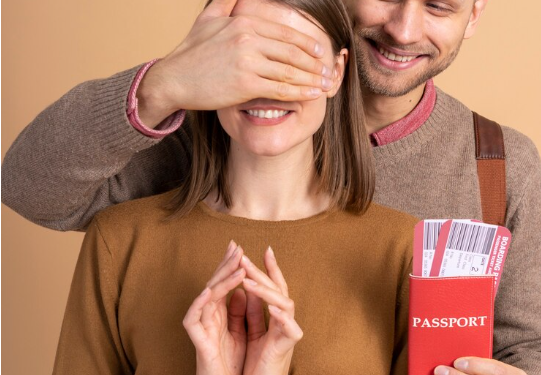With the enchanting idea of a destination wedding becoming increasingly popular among UK couples, it’s essential to delve into the legalities that such a decision entails. Marrying abroad offers a tapestry of romantic settings and cultural experiences, yet it brings forth crucial questions: Is your marriage legally recognised in the UK?
This blog explores the intricate legal landscape that couples must navigate to ensure their overseas vows are not just emotionally binding but also legally valid back home. Understanding these legal aspects is key to turning your dream wedding into a legally acknowledged union in the UK.
Legal Recognition of Foreign Marriages in the UK
In the UK, a marriage conducted abroad is typically recognised if it complies with the laws of the country where it took place and adheres to UK legal principles. For a marriage to be considered valid in the UK, it must be lawful in the destination country and not contravene any key UK legal requirements.
This includes adherence to UK laws on polygamy and consanguinity. Ensuring that your overseas wedding is legal both locally and in the UK is crucial for its recognition upon your return.
Essential Requirements for Validity
For a marriage abroad to be legally recognised in the UK, it must meet certain criteria. Firstly, both parties must have the capacity to marry, meaning they are of legal age and have the mental ability to understand the marriage contract. The marriage must also be entered into voluntarily, without coercion.
The ceremony should comply with the local laws of the country in which it takes place, including any specific ceremonial or legal procedures. These requirements are crucial for the UK to recognise the marriage as legally valid.
Marriage Certificates: Authentication and Legalisation
It’s important to arrange or order a marriage certificate from the country where the wedding took place is a critical step for UK recognition. This document must be authentic and, in some cases, may require legalisation to be considered valid in the UK. Legalisation involves confirming the authenticity of a signature, seal or stamp on documents from overseas.
Couples should also be aware of the need for a certified translation if the certificate is not in English. Ensuring these steps are properly handled is essential for the marriage certificate to be accepted as legal proof of the marriage in the UK.
Navigating Common Legal Challenges
Couples often face various legal challenges when marrying abroad. These can include differences in documentation requirements, such as needing specific forms or approvals that are not standard in the UK. Other issues might arise from procedural differences in the destination country.
For example, some countries have specific residency or witness requirements. It’s important for couples to research these aspects thoroughly and seek advice if needed. Addressing these challenges proactively can prevent complications in having the marriage recognised in the UK.
Planning and Preparation: Steps Before Your Wedding
To ensure your overseas wedding is legally recognised in the UK, comprehensive planning and preparation are essential. Here are key steps to consider:
- Research Legal Requirements: Investigate the marriage laws and documentation needs of your chosen destination. This includes understanding any residency requirements or specific local customs related to marriage.
- Consult Experts: Seek advice from legal professionals or wedding planners who specialise in international weddings. They can provide valuable insights and guidance on navigating the legal landscape abroad.
- Gather Documentation Early: Assemble all necessary paperwork well in advance. This may include passports, birth certificates and any divorce decrees if applicable.
- Understand Certificate Legalisation: Familiarise yourself with the process of legalising your marriage certificate, including any translations and authentications needed for it to be recognised in the UK.
- Stay Informed on UK Laws: Keep up-to-date with any changes in UK laws that might affect the recognition of your marriage.
Following these steps can help ensure a seamless and legally compliant marriage abroad, making your special day both memorable and officially recognised upon your return to the UK.
Ensuring Your Overseas Marriage is Recognised in the UK
In summary, while marrying abroad can be a romantic and exciting venture, it’s crucial to ensure that all legal aspects are meticulously addressed. This includes understanding and complying with both the local laws of the country where the marriage takes place and UK legal requirements.
Properly handling marriage certificates, navigating potential legal challenges and being aware of specific requirements are key steps to guarantee that your marriage is recognised upon your return to the UK.
With careful planning and attention to legal details, your international marriage can be both a dream come true and a legally valid union









